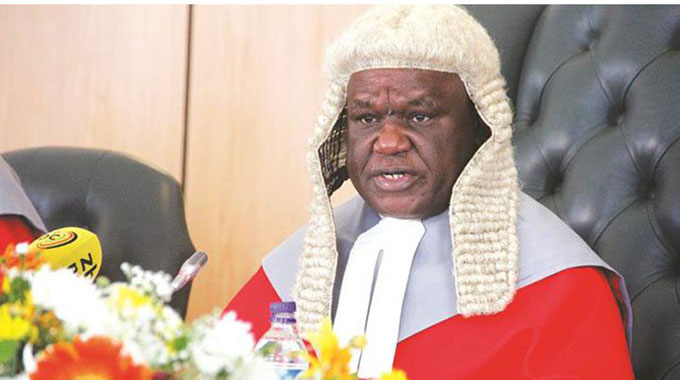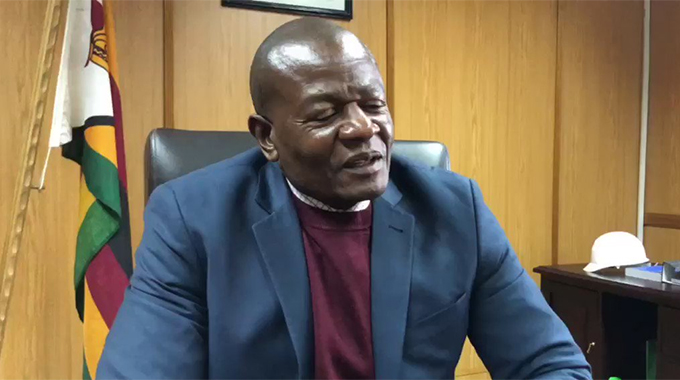2023 Legal Year opens

Fidelis Munyoro-Chief Court Reporter
THE Judiciary will today host a ceremony to mark the official opening of the 2023 Legal Year, with Chief Justice Luke Malaba expected to set the tone for the year, while also reflecting on the major achievements and challenges relating to the discharge of constitutional obligations.
The Chief Justice will preside over the main ceremony in Harare with other Constitutional Court judges and the Judge President of the High Court presiding over opening ceremonies in other provinces.
The ceremonies are running under the theme, “Promoting competence and quality of service to enhance public confidence in the judiciary”.
Deputy Chief Justice Elizabeth Gwaunza will preside over the event in Bulawayo, while Justice Rita Makarau will preside in Masvingo, Justice Paddington Garwe in Mutare and Judge President Justice Mary Dube in Chinhoyi.
Several guests including members of the legal fraternity, members of the diplomatic corps, high-ranking Government officials among others have been invited to grace the annual occasion.
Parts of Samora Machel Avenue, Sam Nujoma Street and Simon Muzenda Street will be temporarily closed today from 9am to 2pm for the event.
During the preceding year, a number of significant reforms were achieved in both infrastructural and technological fronts.
In a bid to ensure access to justice, the Judiciary Service Commission has established courts in all the country’s provincial centres.
The commission is continuing its policy into this year of ensuring courts are built and opened in more centres.
There are now High Court centres in Masvingo, Mutare and Chinhoyi and another one is expected in Gweru in due course.
After expanding the High Court, the commission is now constructing courts in high density suburbs with the aim of taking the justice delivery system close to where the bulk of people stay.
Construction of Epworth Magistrates Court in Harare is at an advanced stage with more courts expected to be built in Glen Norah and Budiriro, while in Bulawayo they will be established in Nkulumane and Entumbane.
In the preceding legal year, Justice Malaba gave an overview of the flagship activity that the Judiciary had taken to enhance efficiency and the rule of law through the introduction of the integrated electronic case management system (IECMS).
The first phase of the system last year was implemented at the Constitutional Court, the Supreme Court and the Commercial Court.
The second phase of the IECMS is expected to see the implementation go live in the Labour Court and Administrative Courts starting on February 1 this year, as the JSC is continuing with its concrete action to implement the IECMS as the solution to the problems arising from features of the justice delivery system that have hindered the realisation of its maximum benefits by the public it is intended to serve.
The adoption and use of appropriate technology in the delivery of justice does not mean that the system would lose the fundamental attributes of transparency, independence, impartiality, accountability, openness and ability to present one’s case on which it is anchored.
It is a fundamental principle of the Constitution that there should be at any given time a system for the delivery of justice which incorporates procedures and processes that guarantee the promotion of these values.
After the Chief Justice adverted to the efforts that the JSC had undertaken to adapt and transform the administration of justice through the IECMS, virtual courts were installed at Chinhoyi Court Complex, Bindura Magistrates Court and Marondera Magistrates Court as well as in respective prisons in those provinces.
The exercise continued throughout last year which saw the installation of equipment across the 10 provinces. The ultimate goal was to have every court in Zimbabwe installed with virtual court equipment.
The digitisation of courts, particularly carrying out virtual hearings has many advantages both to the courts and the litigating public because matters are finalised expeditiously and there is an added advantage of participating in the court proceedings in the comfort of your home or office.







Comments